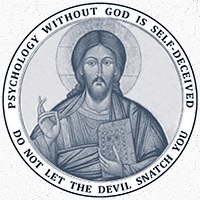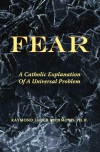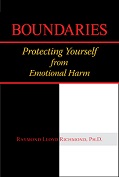|
|
|

 |
 |
Psychological Healing
in the Catholic Mystic tradition |

Not
as man sees does God see,
because man sees the appearance
but the LORD looks into the heart. |
—1 Samuel
16:7 |
Fear |
Love |
Humility |
Spiritual Counsels |
Books |
About CSF
Introduction |
The Benefits of Loving God With a Pure Heart |
A Story About Desire |
Psychological Healing |
treatment Techniques |
The Work of Knowing Yourself |
Demonic Influence |
Medications |
About Vitamins and Minerals |
Putting it into Practice |
The Length of treatment |
Summary: When You Feel Stuck
 F
only we did exactly what Christ told us to do—through prayer and
fasting, [1] turn
away from the satisfactions of the world so as to renounce sin,
pray constantly, and live chaste,
modest, and humble
lives filled with loving sacrifices for the
salvation of other souls—we would be spiritually
and mentally healthy. F
only we did exactly what Christ told us to do—through prayer and
fasting, [1] turn
away from the satisfactions of the world so as to renounce sin,
pray constantly, and live chaste,
modest, and humble
lives filled with loving sacrifices for the
salvation of other souls—we would be spiritually
and mentally healthy.
Nevertheless, even in her time Saint Teresa
of Avila could see the true depth of human nature: that we scorn the way of a
holy lifestyle and seek immediate, tangible comfort for our
emotional distress.
|
 You see, the gift our
Lord intends for us may be by far the best, but if it is not what we wanted we are
quite capable of flinging it back in His face. This is the kind of people we are;
ready cash is the only wealth we understand. You see, the gift our
Lord intends for us may be by far the best, but if it is not what we wanted we are
quite capable of flinging it back in His face. This is the kind of people we are;
ready cash is the only wealth we understand. |
|
|
—The Way of
Perfection (30.2) |
|
Today, things are even more disordered
than in times past. Now we live in a culture of diabolical insanity. In today’s world,
most families have been stained with divorce and the dysfunction
of sexual, emotional, and physical abuse. Traditional family security has been shattered.
And children, rather than basking in prayer and a sense of belonging to God, have become
lost souls wandering in a wasteland. Children are brainwashed from infancy by movies,
television, magazines, popular music, sports, and social media that are all awash with the
diabolical vices of aggressiveness, competition, defiance of authority, sensuality, hatred,
anger, revenge, and lust (even in marriage). Hence when many individuals experience emotional
distress, they think in depths of their hearts, “God owes me. Christ’s sacrifice doesn’t mean
much to me right now. I want tangible compensation for all I have suffered!” Gluttony,
pornography, masturbation, alcohol, tobacco, and drugs are the currency of the “ready cash”
the modern world demands from God.
Consequently, in today’s culture of insanity
the fundamental Christian principle of dying to the self has so lost its
meaning that even most Catholics today find the concept to be incomprehensible. Trust in
God and love for God have lost their meaning. And, sadly, all the while this is occurring,
most of us are blind to it.
Accordingly, many individuals
today need Catholic psychological healing, not
Orthodox Psychotherapy, to help them
overcome the unconscious resistances to doing the very things they know
consciously they should be doing.
|
Hence it can be
said that Catholic psychological healing is a bet that you make that getting close
to your unconscious will remove the psychological obstacles that prevent
you from loving God with a pure heart. |
|
Yet, despite all its spiritual, mental, and
physiological benefits, most persons today are so terrified of facing their inner
emotional pain that they refuse any thought of psychotherapeutic work.
The Benefits of Loving God
With a Pure Heart
When you learn to love God with a pure heart,
you will be working spiritually for the salvation of your soul, but you can experience
many other benefits as well.
1. |
You can grow in the
Fruits of the Holy Spirit and therefore get along
in peace with family and neighbors and be an inspiration for their spiritual
growth. |
|
2. |
You can live a life free from grave
sin. |
|
3. |
You can have the clarity of mind to develop
your talents, work productively, and provide for your material
sustenance. |
|
4. |
Your physical health can improve. |
|
5. |
You can do penance for the past sins you
have committed and thus shorten the penance you will have to do in
Purgatory. |
|
A Story About Desire
I don’t know whether it’s
true or not, but the story goes that a man came to an ancient philosopher
desiring to learn wisdom. The philosopher took the man out into a river and
then suddenly wrestled him down under the water.
Just at the point of drowning him, the philosopher hauled
him out again and said, “Now, what did you say you wanted?”
The poor guy was just gasping and wheezing, begging for
air.
“Well, when you want wisdom as much as you want to
breathe,” the philosopher told him, “then you shall have it.”
Psychological Healing
Many persons find it difficult
to make a total surrender to God through their own efforts, and they discover that
education and reasoning do little to overcome their resistances. In this case,
psychological healing must be used to understand and overcome the
fear that puts up obstacles to the spiritual
purgation necessary for living a
holy lifestyle.
These obstacles are created by
emotional resentments that begin in childhood and become the core of your
unconscious
psychological defenses. Such defenses have an original purpose of protecting
you from intense emotional pain by hiding your resentments from conscious awareness,
but as you get older these resentments can so erode your confidence
and self-esteem with feelings of victimization,
hate, self-blame, and
self-punishment that they affect not only your
mental health but also your social health and spiritual health.
In fact, individuals caught up in
their unconscious defenses are stuck in the false belief that they are
“in control” of their lives and their own mental health.
|
And why is this?
Well, you may not want to admit this to yourself, but all of us have dark and
hateful thoughts and imaginings that we keep shrouded
in secrecy and don’t want to reveal to anyone, especially not to a psychologist.
How many times have you said to yourself, “If people knew what I was really like,
they would never want anything to do with me”? But the more you try to hide the
truth of your life from others, the more you hide it from yourself, and then you
fall into pride—the pride of doing everything your way without need for
total surrender to God. |
|
Evidence-Based Treatment
Techniques
All the treatment techniques that I use
are evidence based, but the evidence does not come
just from scientific experimentation; much evidence comes from ages of experience and
wisdom.
Many various
psychotherapy
theories and techniques
have been developed since the early 1900s when Sigmund
Freud formulated the concept of psychoanalysis. These techniques have
one basic objective: to help us do the things we would like to do, but,
by ourselves, cannot manage to do.
Some of these techniques are
based in conscious, rational thought processes.
• |
Cognitive-Behavioral
techniques, for example, focus specifically on changing thoughts and behaviors.
Note that vocal prayer is the preeminent form
of Cognitive-Behavioral therapy. |
• |
Teaching
and reasoning are also forms of psychological healing. Note that this has
been a preferred method of Christian treatment, beginning with Christ
Himself, continuing with the Apostles, and fully exemplified by men such
as St. Thomas Aquinas (whose work is often recalled by modern Catholics in
their practice of psychotherapy) and St. Ignatius of Loyola in his Spiritual
Exercises. |
Still, some persons develop such
deep resistance to changing their lives for the good that psychological healing must
reach deep into their unconscious minds, well past their conscious
thoughts.
• |
Guided
Imagery helps you visualize things that could or might occur so that
you can achieve them or avoid them in the future. Note that St. Ignatius
of Loyola anticipated this concept in his Spiritual
Exercises. |
• |
Mental
Prayer (or contemplative prayer) calls upon inspiration by the Holy
Spirit to reveal and understand unconscious mental conflicts. Note that Catholic
mystics through the ages have had much to say about this. |

• |
Dreams [2] can
be interpreted to help you understand emotional
elements of your life that you have not yet recognized consciously. Note that the
Book of Daniel provides a practical example of this, while the Book of Sirach (34:5)
warns us that dreams are not meant to be taken as predictions of actual future
events. |
The Work of Knowing Yourself
Some persons will say that they
want nothing to do with “touchy-feeley psychology” and will insist
that their lives are quite fine without it. Those who say this, however,
have usually experienced family dysfunctions such as alcoholism, or emotional,
physical, or sexual abuse. In an environment of lying, broken promises, arguing,
and violence, they grew to fear emotions as something
dangerous, and so they fear knowing the emotional truth about themselves; that is, they
refuse to know themselves.
Nevertheless, in order to live
a true Christian lifestyle, all persons, male and female, need to know themselves
well enough to be able to manage their internal emotional reactions to external
events, so as to remain always in a place of Christian purity of heart. Two common
“emotional traps” illustrate this.
1. |
Let’s say that someone says
something critical to you. Your immediate reaction, based upon learned behavior
from childhood, will be to defend yourself. That can provoke more criticism,
and more arguing, until you get so exasperated that you start saying hateful
and vengeful things—and right there you have abandoned purity of heart
and fallen into sin. This all occurs because interpersonal conflicts result
from failed emotional communication. |
2. |
Let’s say that someone corrects
something that you did. You could just say, “Thank you. I hadn’t thought of that
before.” But instead, because your mother or father constantly criticized you
as a child, you sink into silent despondency, thinking, “I can’t do anything
right. I’m just a worthless piece of garbage.” |
3. |
Let’s say you’re on
your way home from work and suddenly you feel a temptation to stop at a bar
and drink—to use drugs—to shoplift—to stop at a strip
club—to get a “massage” from a prostitute—to
masturbate. So right there you have abandoned
purity of heart and fallen into sin. This all occurs because behind every
temptation is an emotional reaction to some event earlier in the day that has
shaken your self-confidence. |
Emotional awareness, therefore,
is a psychological tool that provides protection from sin.
Interpersonal conflicts result from failed emotional awareness. Temptations
do not just appear out of nowhere; behind every temptation is an emotional
reaction to some event that has shaken your self-confidence. It is impossible
to stay in the place of Christian purity of heart if you fail to know yourself well
enough to understand your emotional reactions to the events around you.
Thus Catholic psychological and
spiritual healing helps you to know yourself so that you can learn to respond to
every moment of the present with an understanding of the emotions involved—and this
understanding gives you the ability to respond
honestly
and appropriately to the situation.
|
For example,
if someone says something that hurts you, you can say to yourself, “OK.
I’m feeling helpless and abandoned.” In the midst of these feelings,
you can recognize how you responded
defensively
to similar feelings as a child. Then you can choose an appropriate,
non-defensive, mature, and psychologically
honest
response to your current feelings.
But if you
haven’t done your psychological work, instead of naming your feelings
you will just feel a vague yucky inadequacy and
then get
angry or
go off and drown the yuck with food or drugs or some other dysfunctional
behavior. The sad thing is that when you drown the yuck, right along with
it you drown the possibility of forgiveness—and that opens a hellgate to
demonic influence. |
|
Demonic
Influence
Demons are everywhere, trying to subvert
God’s will in regard to everything. Primarily, demons affect our behavior by trying to
affect our thoughts, so as to discourage us and lead us into doubt, despair, and sin,
and our task is to resist such temptations. In some cases
demons can affect circumstances, but only with God’s permission; in these cases, our
task is to surrender to God’s will.
Some persons, however, falsely believe that
psychological disorders can be the result of demonic influence.
The truth is actually the other way around. Psychological disorders result from
emotional resentments that have been stuffed away into the unconscious, and then,
if the resentments are especially strong, the anger and hatred underlying them
will attract demons the way blood in the water attracts sharks. Remember a
fundamental point here: demons cannot get into us unless we invite them in,
and one clear invitation is through the door of anger and
lust. Consequently, if demonic oppression is
suspected, prayers of deliverance—and formal exorcism, if required—will be necessary.
Note well, though, that the demons will keep coming back as long as there is hatred and
lust for them to feed on. To stay free of the demons, the unconscious resentments
underlying the psychological disorder must be resolved through Catholic psychological
and spiritual treatment.
|
Sometimes individuals
seek medical treatment because they are “hearing voices.” Quite commonly, the “voices”
will be diagnosed as auditory hallucinations
and anti-psychotic medications will be prescribed. But if the medications do not
stop the voices, then it’s likely that the voices are not hallucinations but are
either internal thoughts and fantasies, perceptions of
ego states, or real spiritual experiences of a demonic
nature. In such a case, a Catholic psychologist should be consulted to help heal the
underlying unconscious issues, especially lust and anger, causing the emotional
distress. As a last resort, an exorcist should be consulted to cast away the
demons. |
|
The Place for
Medications
Psychological and spiritual healing is
hard work. It will often seem counter-intuitive because it does not examine
only what is on the surface of your life. To be able to cure the pain and
confusion of your life, you really have to examine and change what motivates
you to act in ways that cause pain and confusion,
and, for the most part, this motivation is unconscious
and under the surface of your life. Therefore, your true motivation cannot be
examined directly. It must be examined indirectly by digging through all the dirt
and filth hidden under the surface. It’s no wonder, then, that most people
fear psychological healing—and fear psychologists.
Consequently,
psychiatric medication has a special appeal to it, an appeal that is seen
more and more today in advertising. Rather than go through all the hard work
of constantly monitoring your feelings, thoughts, and actions, why not feel
better without having to do anything at all? Why change your lifestyle? Just
take some pills a couple times a day and go about your life as
usual.
Now, the truth
is, psychiatric medications are generally mandatory for the treatment of
disorders such as schizophrenia and mania. For
other disorders such as depression,
PTSD, anxiety, or
obsessive-compulsive disorder, psychiatric medications
can, in some special cases, be a helpful adjunct to psychological
treatment.[3]
It’s important, though, to keep in mind
that psychiatric medications are not curative. The
medications merely suppress unwanted symptoms for as long as you take the medications.
If you stop the medications, the symptoms will flourish again in full strength.
About Vitamins and Minerals
The daily diets of many
persons have nutritional deficiencies that affect mental health. Most persons aren’t
aware of this, and so, if they experience any mental health problems, they tend to believe
that their lives must be dependent on psychiatric medications.
So, rather than subject yourself to harsh medications that sedate and dull your mind (and
more often than not lead to substantial weight gain), consider this list of some vitamins
and minerals that can help naturally with psychiatric symptoms. Be advised that the therapeutic
dose may be higher than the FDA minimum daily recommendation, so a simple multivitamin
tablet probably won’t have much effect on psychiatric symptoms. You might want to discuss
this with a naturopathic practitioner, or see the book Nutrition and Vitamin Therapy by
Michael Lesser, M.D. (1980) for dosage recommendations.
Below is a list of vitamins and minerals along with the psychiatric symptoms that can result
from a deficiency of that vitamin or mineral. Taking daily supplements of a vitamin or
mineral may be helpful in alleviating the symptoms of its deficiency.
Vitamin A: anxiety / insomnia / depression / fatigue /
nerve pains

Vitamin B1: depressed mood / fatigue / apathy /
confusion

Vitamin B2 (Riboflavin): trembling / dizziness /
insomnia / mental sluggishness

Niacin: anxiety / suspicion / depressed mood

Vitamin B5 (Pantothenic Acid): bruxism / stress / depressed mood /
fatigue / quarrelsomeness

Vitamin B6: depressed mood / anxiety

Vitamin B12: poor memory / poor concentration /
anxiety

Folic Acid: poor memory / apathy / slow intellect /
irritability /
“senility”
Note that antiepileptic medications can cause folate
deficiency.

Vitamin C: anxiety / insomnia / fatigue

Vitamin D3: anxiety / depressed mood

Calcium: panic attacks / anxiety / insomnia /
depressed mood / poor memory / seizures

Magnesium: anxiety / insomnia /
hyperactivity / premenstrual depressed mood / grouchiness / irritability

Potassium: apathy

Zinc: apathy / lethargy

Iron: poor memory / depressed mood
For good mental and physical health, all of these vitamins and minerals
should be consumed daily, whether from food or as supplements. Note that in
today’s world our food chain has been so corrupted by over-cultivation,
fertilizers, and genetic modifications that most foods today are themselves
deficient in essential minerals. Thus, vitamin and mineral supplements are
actually a necessary aspect of modern life today.
Because many traditional physicians do not understand how vitamin deficiency
can be a cause of physical or mental distress, you may benefit from having a
naturopathic practitioner do a screening for vitamin and mineral
deficiency.
Putting It
Into Practice
In the form of psychological and
spiritual healing I practice, and as I describe on this website, you can be
guided—through the sacraments, vocal and mental
prayer, fasting, study,
and the insight resulting from the psychotherapeutic relationship—into
understanding the roots of your unconscious conflicts and defenses; you can
learn to identify the events of life that have wounded you and to understand
the emotions surrounding those events.
That is, it’s not enough
just to “know” intellectually what
occurred—it is important to feel the pain and then be able to identify
and “name” the emotions associated with your pain.
This process occurs through
your speaking about your life in a therapeutic setting so as to interpret
unconscious
connections through spontaneous associations to your intellectual memories
and through other techniques, such as
free association and
dream interpretation.
From my website A Guide to
Psychology and its Practice:
Eventually, through the work of psychological healing,
you can recover a full awareness of your emotional life that in childhood you learned to
suppress as a psychological defense.
|
The goal of all
this work is not to blame your parents for the hurt they caused you
but to get past your hidden resentments
and anger at your parents for the hurt they caused
you. To do this work, it is necessary to bring to conscious awareness the many
emotional injuries that you experienced in childhood. Only then can you take
full responsibility for your life and
ultimately
forgive
your parents and honor them for whatever good they
did do. Be grateful for what your parents did well, yet be realistic about their
failures. If you don’t do this work, then your anger at your parents will get stuffed
down into the unconscious where it will cripple your life with insecurity and failure.
So remember, as long as you have unconscious anger at your parents, trying to honor
them is just a lie. |
|
|
|
The Length of Treatment
The length of treatment depends on the
nature, the severity, and the extent of the emotional wounds that
have afflicted you—and those criteria in turn affect the strength of your resistance to
change, which in turn affects the length of the treatment. For example, someone who experienced
a lack of parental involvement and guidance in childhood, but who
had supportive friends and teachers throughout childhood would likely be receptive
to changing old patterns of thinking and behavior and so might need a few months of weekly
sessions of treatment to change old patterns of behavior. In contrast, someone who experienced
repeated parental failures throughout childhood, who lacked a social network attuned
to his or her needs and aspirations, and who experienced continued emotional trauma as an
adult would likely develop strong defenses resistant to facing the depths of his or her
emotional pain, resistant to changing behavioral patterns, and resistant to relinquishing
the desire for revenge on others—and on God. Overcoming those resistances could take several
years of weekly treatment.
Summary: When
You Feel Stuck
People often tell me that they
feel stuck and unable to make any spiritual progress, and they ask me what
to do.
Learn to Pray
Properly
Well, first of all, pray. But
be careful here. Just going to Mass and praying the Rosary isn’t
sufficient to inspire healing. Healing prayer must be a constant moment-by-moment
communication with God in the heart. Healing prayer can also be a matter of
deliverance prayer for yourself or with a priest
and exorcism by a priest-exorcist. Moreover, healing prayer is not simply a matter
of asking for specific things to occur or for material benefits; instead, pray for
humility to accept your brokenness, for
wisdom to accept God’s guidance in all things, for
courage to face your emotional pain, for
determination to resist worry and doubt, for
strength to persevere through darkness, and for
understanding accept the guidance necessary to make
meaningful changes in your beliefs about yourself and
to change your physically and spiritually unhealthy behaviors.
Moreover, don’t expect that
God will tap you on the shoulder and say, “Hey
[N]! This is what I want you to do.”
God’s answer to your prayers will come though ordinary daily events.
It will be up to you to open your heart to believing that ordinary
events—under the influence of constant prayer—can help guide you.
For everything that occurs (especially for
tribulations and
distress), say to yourself, “What is this
telling me about what I need to learn about myself and how I need to
change?”
One good prayer for psychological and
spiritual change is the following prayer of my own. (It really works, because I
used it during my conversion.)
O HOLY
SPIRIT,
take me as Your disciple.
Guide me; illuminate me; sanctify me.
Show me what is holy,
and I will pursue it.
Show me what is unholy,
and I will turn from it.
Command me, and with Your grace
I will obey.
Lead me, then, into the fullness
of Your truth and Wisdom.
Amen. |
Detachment from
the Social World
Also, as a way to detach from the
unholy influence of the social world, follow the
Spiritual Counsels on this website.
Hidden
Anger
If you find that you have
difficulty praying and keeping the Spiritual Counsels,
then consider that your stuckness could be a form of anger,
directed at others, especially your parents. That is, you
may be unconsciously creating a disability so as to send
yourself to hell to prove to others that they have failed you.
Ego States
Discovering and understanding
ego states can be an important part of psychological healing.
For example, the “inner child” can hold much of your emotional pain from childhood, and
its pain of being neglected can be the basis for much of your emotional distress and
dysfunction. In this regard, note that it can be comforting to know that you do not have
to identify with the distress of a child ego state; that is, the adult part of you can
listen objectively and without fear to the child’s emotional pain. So if you resolve to
listen to that pain, rather than run from it as you likely have been doing most of your
life, then the missing part of your psychological healing can
be remedied.
Click here for more
information about consultation with me.

Notes.
1.When prayer is combined with fasting for psychological healing,
it is important to understand both prayer and fasting in a very specific sense.
In regard to healing, prayer
must be more than “standard” formal prayers (such as the Rosary); prayer must be an
intimate communication with God as an appeal for deep personal scrutiny (both
psychological insight into past emotional injuries and psychological insight into the
ways current thoughts and behaviors are affected by those past emotional injuries) and
an appeal for the desire and courage to alter dysfunctional life patterns through
a dedicated surrender to, and trust in, God’s will.
In regard to healing, fasting
should be considered to be an act of distancing oneself from anything that is not necessary
for nurturing a state of life governed by total love for God. Hence we can fast from worldly
activities (e.g., entertainment and sports) that bring material pleasure to life but that
actually distract us—and often lead us away—from an awareness of God’s holy presence in our
lives. In this regard, the most benefit will result from perpetual fasting. (Note that perpetual
avoidance of mortal sin could also be considered a form of fasting, but this sort of fasting
must be considered mandatory for every Christian.)
We can also fast from food and drink that our bodies do not really need
for optimal functioning. In this regard it is important to understand that fasting does not
amount to a ruthless act of merely denying ourselves pleasure from good food; instead, fasting
has two aspects. First, it can refer to cutting back on—and even eliminating, if possible—unhealthy
foods (e.g., junk foods, sugary foods, processed foods). Second, it can refer to a selective
reduction of the usual amount of food for a limited time, so as to effect a purging of
physiological toxins from the body and also to stimulate a greater awareness of a spiritual hunger
for the presence of the holy in our lives.
2. Note that a traditional Catholic
guide such as the Baltimore Catechism claims that dreams are irrational and
meaningless and should be ignored. But note carefully that this Catechism was
written at a time when the psychology of the unconscious was not scientifically
understood. It just goes to show that scientific knowledge—in contrast to
Catholic dogma—is always limited to the current culture. If you want to believe
the Baltimore Catechism about dreams you may as well believe that the world is flat
or that the sun revolves around the earth.
3. Be careful not to be deceived by
“medical marijuana.” Marijuana is an evil substance, and any use of it, for any
reason, opens a hellgate to demonic influence. As politically correct as “medical
marijuana” may seem, it’s all a demonic deception.


Healing
|
Though
Demons
Gloat
|
Anger
&
Forgiveness
|
Falling
Families,
Fallen Children
|
Emotional
Trauma
|
Psychology
from the
Heart
|
 |
 |
 |
 |
 |
 |
Psychological Healing
in the Catholic Mystic tradition |
True Christian
Identity
In Confronting
Evil |
How to Turn the
Emotional Wounds
of Daily Life Into
Psychological Growth. |
The Psychological
and
Spiritual Remedy
For Our Cultural
Disintegration |
And its
Psychological
and Spiritual
Nature |
Collected Texts
About the Spiritual Depth of
Clinical Psychology |
More information |
More information |
More information |
More information |
More information |
More information |
Desire
and
Distraction
|
Fear
|
Stopping
Smoking
|
Borderline
Personality
Disorder
|
Catholic
Compassion
|
Reverence
for the
Holy Eucharist
|
 |
 |
 |
 |
 |
 |
A Catholic Perspective
On Behavioral Change
and Its Subversion |
A Catholic Explanation
Of a Universal
Problem |
Through
Faith
and
Prayer |
Healing
the
Rage |
When They Tell You
That the Moral Teachings of the
Catholic Church
Are Wrong |
Reverent and
Proper Conduct in
a Catholic Church |
More information |
More information |
More information |
More information |
More information |
More information |
|





 You see, the gift our
Lord intends for us may be by far the best, but if it is not what we wanted we are
quite capable of flinging it back in His face. This is the kind of people we are;
ready cash is the only wealth we understand.
You see, the gift our
Lord intends for us may be by far the best, but if it is not what we wanted we are
quite capable of flinging it back in His face. This is the kind of people we are;
ready cash is the only wealth we understand.
















